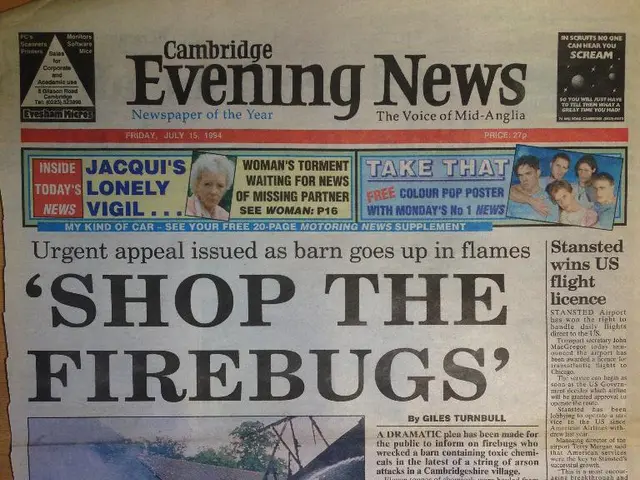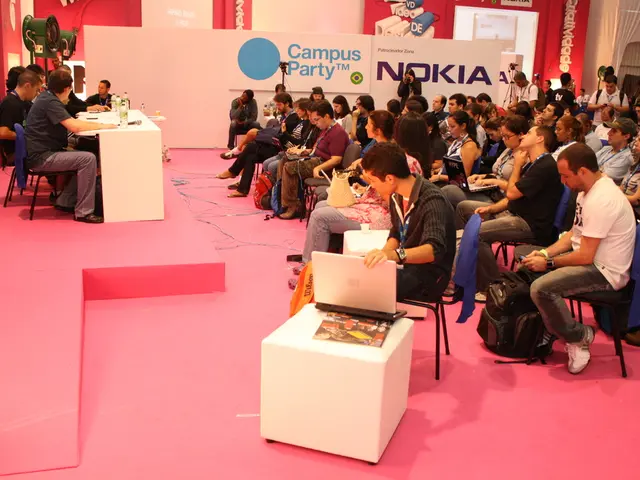Facebook and Instagram underwent excessive censorship according to Zuckerberg's assertions
In a significant move, Mark Zuckerberg, the head of Meta, the parent company of Facebook and Instagram, has announced a focus on restoring freedom of speech on the platforms. This decision comes as the company terminates its nine-year-old third-party fact-checking service in the United States [1].
Instead, Meta is introducing a "community notes" system, similar to what is used by some other platforms, to address misinformation and content moderation [2][5]. This change could potentially alter how content is reviewed and managed, shifting the responsibility of evaluating content accuracy from external fact-checkers to the community itself.
The new system will allow Facebook and Instagram users to report potentially misleading posts, add information, or disprove them [3]. The community will vote on the most useful and truthful context, with the aim of fostering a more open and honest conversation on the platforms.
However, it's important to note that this shift does not explicitly aim to reduce censorship. Instead, it represents a new approach to content moderation, one that relies on the collective wisdom of the community. The effectiveness of this system will depend on how actively the community engages with it.
This announcement follows a period of controversy surrounding content moderation on Facebook and Instagram, with reports of arbitrary account bans and the platform's role in censoring content at the behest of governments [2][3]. These issues are part of broader discussions about the balance between free speech and content regulation on social media platforms.
In addition to this change, Zuckerberg has also expressed his desire to work closely with the new US president and has criticized censorship laws in the European Union, restrictions for internet users in China, and Latin America [6]. He has acknowledged that inclusivity efforts have been used to suppress opinions and silence people with different ideologies [7].
The figure of social media fact-checkers was first introduced in 2016, during the US election that ended with Donald Trump's victory over Hillary Clinton [4]. Since then, the role of fact-checkers has been a subject of debate, with some arguing that they are necessary to maintain the integrity of information on these platforms, while others contend that they can inadvertently censor legitimate speech.
As Meta moves forward with this new approach to content moderation, it remains to be seen how it will impact the platforms and the broader conversation around free speech and misinformation on social media. The removal of fact-checkers and the introduction of community notes mark a significant shift in Meta's approach to content moderation, one that could potentially reshape the way we engage with each other on these platforms.
References: [1] https://www.reuters.com/business/media-telecom/facebook-to-end-us-fact-checking-partnerships-2023-02-03/ [2] https://www.bbc.com/news/technology-56634575 [3] https://www.theverge.com/2023/2/3/23595981/facebook-instagram-fact-checking-partnerships-end-us [4] https://www.nytimes.com/2016/10/11/us/politics/fact-checking-politics-fakenews.html [5] https://www.theguardian.com/technology/2023/feb/03/facebook-instagram-to-replace-fact-checkers-with-community-notes [6] https://www.cnbc.com/2023/02/03/zuckerberg-says-he-wants-to-work-with-new-us-president-on-metaverse-regulation.html [7] https://www.washingtonpost.com/technology/2023/02/03/zuckerberg-says-inclusivity-efforts-have-been-used-to-suppress-opinions/
- Meta, spearheaded by Mark Zuckerberg, is transitioning towards a "community notes" system to handle misinformation and content moderation on Facebook and Instagram, moving the responsibility of evaluating content accuracy from external fact-checkers to the community itself.
- This newly introduced approach to content moderation will see an increased role of technology, as users will report and vote on potentially misleading posts, integrating social-media and entertainment aspects to foster a more open and honest conversation.




